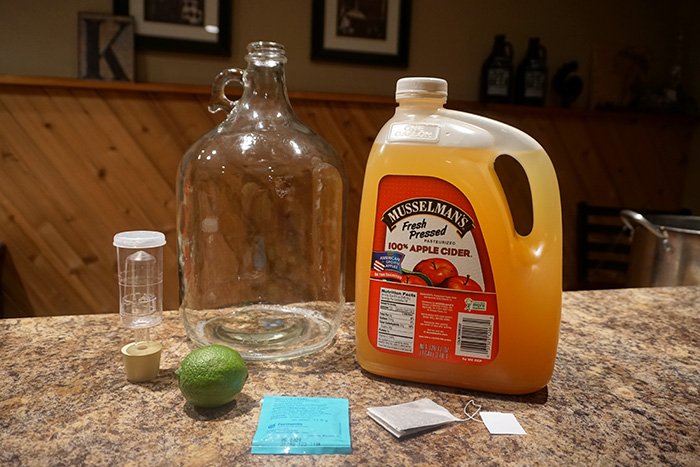Cider
Cider is an alcoholic beverage made from the fermented juice of apples. Cider is widely available in the United Kingdom (particularly in the West Country) and Ireland. The UK has the world's highest per capita consumption, as well as the largest cider-producing companies. Ciders from the South West of England are generally higher in alcoholic content. Cider is also popular in many Commonwealth countries, such as India, South Africa, Canada, Australia, New Zealand, and New England. As well as the UK and its former colonies, cider is popular in Portugal (mainly in Minho and Madeira), France (particularly Normandy and Brittany), northern Italy (specifically Friuli), and northern Spain (specifically Asturias and Basque Country). Germany also has its own types of cider with Rhineland-Palatinate and Hesse producing a particularly tart version known as Apfelwein. In the U.S. and Canada, varieties of alcoholic cider are often called hard cider to distinguish it from non-alcoholic apple cider or "sweet cider", also made from apples. In Canada, cider cannot contain less than 2.5% or over 13% absolute alcohol by volume. The juice of most varieties of apple, including crab apples, can be used to make cider, but cider apples are best. The addition of sugar or extra fruit before a second fermentation increases the ethanol content of the resulting beverage. Cider alcohol content varies from 1.2% to 8.5% ABV or more in traditional English ciders, and 2.5% to 12% in continental ciders. In UK law, it must contain at least 35% apple juice (fresh or from concentrate), although CAMRA (the Campaign for Real Ale) says that "real cider" must be at least 90% fresh apple juice. In the US, there is a 50% minimum. In France, cider must be made solely from apples. Perry is a similar product to cider made by fermenting pear juice. When distilled, cider turns into fruit brandy.
Source: Wikipedia
Recipes





